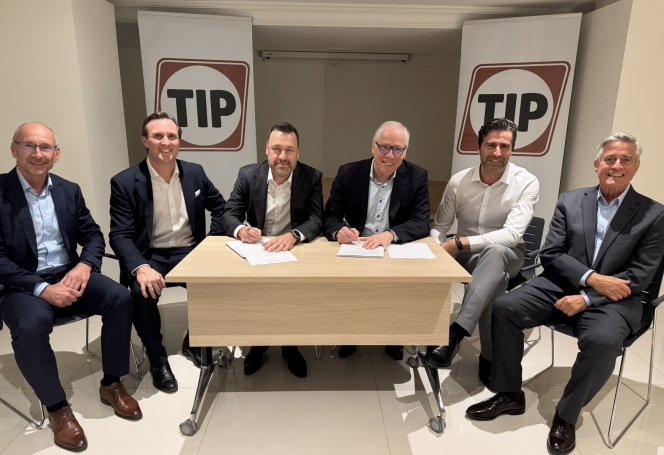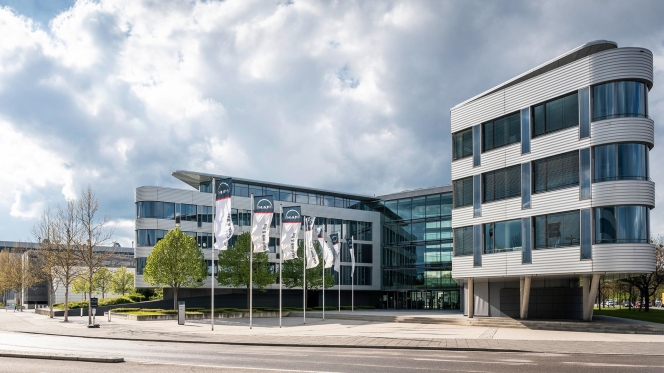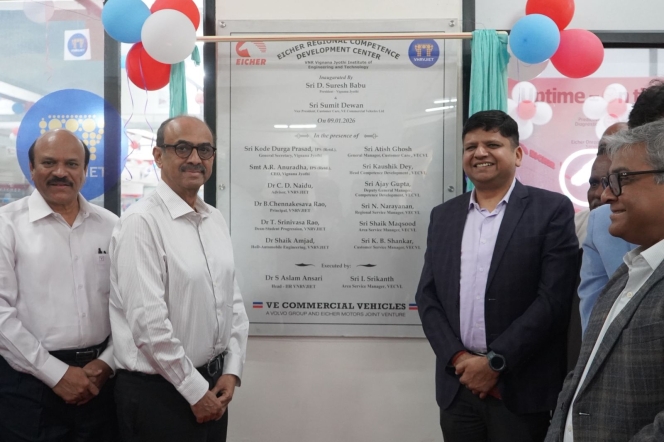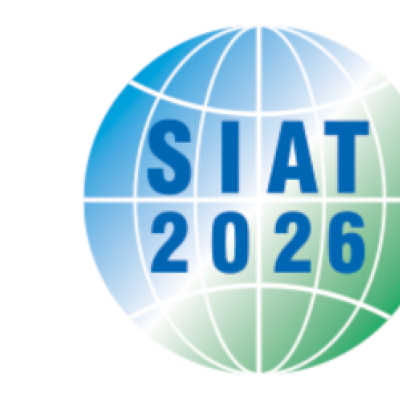Indian Road Logistics Industry to Experience Modest Growth in FY2024-25
- By Gaurav Nandi
- April 10, 2024

Indian road logistics industry is anticipated to witness a steady but restrained growth trajectory in the fiscal year 2025, as projected by the credit rating agency, ICRA. The forecast suggests a modest expansion of revenues within the range of 3-6 percent, primarily attributed to several factors influencing the sector's dynamics.
According to ICRA's analysis, the industry's growth pace is expected to be constrained by several factors. These include the limited capacity of logistics players to adjust freight rates, anticipated softening of government expenditure during the election period due to the Model Code of Conduct obligations and a moderation in consumer demand sentiments owing to elevated levels of inflation and interest rates.
Despite the prevailing challenges, ICRA maintains a stable outlook for the sector. This optimistic stance is underpinned by sustained momentum in economic activities, the increasing traction of organised trade and ongoing support from diverse segments such as e-commerce, FMCG, retail, pharmaceuticals and industrial goods.
An indication of the resilience within the sector is evidenced by the performance metrics of e-way bills and FASTag volumes. E-way monthly volumes have remained robust, hovering above 85 million for the past four months. Although slightly below the all-time high of 100 million recorded in October 2023, this sustained level signifies resilient domestic trade and transportation activities.
Similarly, the monthly FASTag volumes have mirrored the trends observed in e-way bills. Ranging from 295 to 350 million in the current fiscal year, with a peak of 348 million in December 2023, the figures reflect the continuity of business operations despite market fluctuations and external uncertainties.
Commenting on the same, Vice President and Sector Head – Corporate Ratings, ICRA Limited, Suprio Banerjee, said: “ICRA’s sample set witnessed a modest revenue growth of 2.3% in 9M FY2024 on a YoY basis amidst tapering demand due to high inflation, an uneven monsoon, a high interest rate regime and relatively muted festive season. Thus, on an elevated base of FY2023, ICRA estimates a low single digit growth of 2-5 percent in FY2024. The growth for road logistics sector in FY2025 is expected to be in the range of 3-6 percent, owing to the impact on demand from high inflation, high interest rate regime and soft (though improving) consumer sentiment.”
“The industry operating profit margin contracted to 11.2 percent in 9M FY2024 on account of increase in operating costs (ex-fuel) due to the high inflationary regime and pressure on realisations, given the sticky retail diesel rates, limiting any formula-driven price rise. ICRA expects the margins to remain in the range of 10.5-12.5 percent in FY2024 and FY2025 over 12.4 percent in FY2023 amidst inflationary headwinds and despite benefits of efficiency gains due to increasing digitalisation and value-added service offerings of industry players. Key debt metrics like OPBITDA is expected to have moderated marginally to 1.5-1.7 times in FY2024 from 1.4 times in FY2023 with rising operating costs (ex-fuel), given the persistently high inflation levels and increase in debt due to debt-funded capital expenditure for new vehicles and anticipated rise in lease liabilities due to expanding branch network and technology investments,” he added.
He also informed, “Additionally, road logistics players also remain exposed to environmental and social risks. Tightening emission control norms necessitate alternative fuel vehicle investments or investments in the current fleet. They are also exposed to litigation or penalties arising from issues related to harmful emissions and waste, which may lead to financial implications and impact reputation. The social risk includes driver shortage, health, safety and quality of work-life balance for drivers.”
While the Indian road logistics industry faces challenges such as constrained pricing abilities and economic uncertainties, it continues to exhibit resilience and stability. The sector's ability to adapt to changing circumstances and sustain operational momentum underscores its significance within the broader economic landscape.
As the fiscal year progresses, stakeholders will closely monitor developments, seeking opportunities to navigate challenges and capitalise on emerging trends.
MAN Truck & Bus And TIP Group Ink EUR 160 Million Framework Agreement For 1,800 CVs
- By MT Bureau
- January 20, 2026

MAN Truck & Bus and TIP Group have entered into a framework agreement for the delivery of up to 600 commercial vehicles annually over the next three years. The contract includes up to 1,800 units across all weight classes, ranging from 7.5 to 42 tonnes and covers operations in 18 European countries. The agreement, which includes both diesel and battery-electric trucks, has a total order value of up to EUR 160 million.
The diesel vehicles supplied will feature the PowerLion drivetrain, incorporating the D30 engine and TipMatic-14 transmission. According to the automaker, these aerodynamic updates reduce fuel consumption and CO2 emissions by up to 5 percent compared to previous models. In the electric segment, the contract includes the eTGL, eTGX and eTGS models. Depending on battery configuration, these vehicles offer claimed ranges between 310 km and 830 km.
The electric heavy-duty models are equipped with Combined Charging System (CCS) connections supporting up to 375 kW. From mid-2026, these models will support megawatt charging up to 750 kW. MAN produces both drive types on a single assembly line at its Munich plant to manage market demand and production costs.
TIP Group, which manages a fleet of over 90,000 assets, will utilise MAN service contracts to manage maintenance and repairs across its European network. These contracts provide fixed monthly rates to ensure cost transparency and vehicle uptime for rental customers.
Friedrich Baumann, Executive Board Member for Sales & Customer Solutions, MAN Truck & Bus, said, “With the new framework agreement, MAN Truck & Bus and TIP Group are sending a strong signal for the future of freight transport. We are pleased to accompany TIP as an important partner on the path to sustainable logistics – with efficient diesel trucks and innovative battery-electric vehicles. This agreement underscores the trust in our products and services and shows how we are jointly driving the transformation of the industry forward.”
Arjen Kraaij, CEO, TIP Group, said, “Supporting customers through the transition means offering the right solutions at the right time. By working closely with partners like MAN, we can expand our fleet with both highly efficient diesel trucks and electric trucks, giving operators practical choices that balance performance, cost efficiency and sustainability.”
Gulf Oil Lubricants Inks Strategic Partnerships With ACE, Ammann India And XCMG
- By MT Bureau
- January 19, 2026
Gulf Oil Lubricants India has established strategic alliances with three construction equipment manufacturers – ACE (Action Construction Equipment), Ammann India and XCMG. These agreements are intended to expand the company’s presence in the infrastructure segment by providing equipment-specific lubricants for the Indian market.
As part of the collaboration with ACE, Gulf has added new products to the ACE Genuine Oil range, covering machinery such as cranes, backhoe loaders, motor graders and tractors. For Ammann India, which holds a 60 percent market share in asphalt mixing plants, Gulf will serve as the official partner for its entire equipment range. This includes the development of formulations for future machinery. Additionally, Gulf will launch branded lubricants for XCMG to support its range of construction equipment within India.
Alongside these alliances, Gulf has introduced a range of specialised products including fire-resistant hydraulic oil, zinc-free hydraulic oil and CEV V diesel engine oil. These formulations are engineered to meet the requirements of new-generation equipment while improving uptime and reducing the total cost of ownership for contractors.
The company currently manages over 50 OEM associations across the automotive, industrial, and construction sectors. These partnerships are a component of Gulf’s strategy to provide technical services and product selection tailored to Indian operating environments.
Ravi Chawla, Managing Director & CEO, Gulf Oil Lubricants India, said, “Infrastructure has been a strategic focus area for Gulf for over 15 years, and these partnerships mark a significant step forward in strengthening our presence in this growing sector. By working closely with leading OEMs like ACE, Ammann, and XCMG, among others, we are able to deliver application-specific, future-ready lubricant solutions for new generation equipments that help customers improve equipment reliability, reduce downtime, and optimise total cost of ownership. We firmly believe that long-term value is built through strong, enduring partnerships.”
MAN Truck & Bus Plots EUR 1 Billion Investment In Germany By 2030
- By MT Bureau
- January 17, 2026

German commercial vehicle major MAN Truck & Bus has reached an agreement with employee representatives and the IG Metall union on its MAN2030+ programme. The initiative is designed to reduce costs by approximately EUR 900 million by 2028 while funding investments of almost EUR 1 billion in the company’s German locations by 2030.
The programme includes the development of vehicle generations based on the TRATON Modular System (TMS). Production and R&D investments will be made in Germany and Eastern Europe, where the group plans to establish a battery factory to support the transition to electric heavy-goods vehicles and buses.
The agreement secures the jobs of employees at MAN Truck & Bus in Germany until at least 2035, with a potential extension to 2040 based on sales and earnings performance. All German production sites will be retained. The company plans to adjust its workforce by 2,300 jobs over the next decade through natural fluctuation and demographic trends, avoiding redundancies or severance schemes.
Alexander Vlaskamp, CEO, MAN, said, “Following intensive negotiations, we have now reached agreement with our employee representatives on the implementation of key cornerstones of the MAN2030+ program. The plan secures MAN’s competitiveness and guarantees our customers a broad product portfolio as a full liner, which forms the basis for the company’s future success. This will enable us to secure the jobs of our current employees also in the future. With our continued high level of investment in Germany, we are fulfilling our industrial policy responsibilities. We will now consistently implement the long-term MAN2030+ program in order to counteract intensifying competition, changing market conditions and major regulatory risks at an early stage."
The EUR 900 million cost reduction will be achieved through savings in material and overhead costs, as well as sales performance improvements. The company has ruled out wage cuts and committed to continuing profit-sharing payments and above-tariff benefits.
Karina Schnur, Chairwoman of the General Works Council, MAN Truck & Bus, said, “The discussions were not easy, but they were always respectful and constructive, and from the perspective of co-determination and IG Metall, they have now resulted in the best possible compromise for our employees and the company. The agreement sends a very strong signal regarding the security, stability, and future prospects of our employees. With this agreement, we are securing the jobs of our colleagues at MAN until at least the end of 2035. And we are doing so without interfering with collectively agreed benefits. In addition, we were able to agree on profit sharing for employees and the payment of benefits above the collective agreement level – which means that MAN will remain an attractive company for future generations. Furthermore, we are securing the long-term preservation of our German locations. At the same time, we are creating the freedom to continue investing significantly in our German locations and the future of MAN.”
The programme also prioritises vocational training, with MAN committing to hire trainees amounting to at least 2 percent of the permanent workforce annually. By the mid-2030s, the company expects to employ approximately 13,000 staff across its German operations.
Volvo–Eicher Establishes Regional Competency Development Centre At VNR VJIET
- By MT Bureau
- January 13, 2026

In a strategic commitment to cultivating advanced technical expertise in South India, Eicher (VE Commercial Vehicles Limited) has established a long-term Regional Competency Development Centre at VNR Vignana Jyothi Institute of Engineering & Technology (VNR VJIET) in Hyderabad. This significant investment underscores Eicher's dedication to fostering industry-ready talent and enhancing the practical skills of its own workforce and network. The centre, inaugurated for an initial 10-year term, represents a core component of Eicher's vision for collaborative innovation and sustainable skill development within the automotive sector.
The newly inaugurated facility is equipped with a comprehensive range of operational vehicles, including diesel and electric models, alongside specialised diagnostic equipment and cut models of vital automotive systems. This infrastructure is designed to provide immersive, hands-on learning for Eicher employees and dealer partners from the Telangana and Andhra Pradesh regions. Furthermore, it creates a vital bridge to academia, offering students and faculty from key engineering disciplines direct exposure to current industry technologies and real-world automotive systems within their academic environment.
This initiative is fundamentally driven by Eicher’s objective to support sustained knowledge advancement and create a robust pipeline of skilled professionals. By enabling structured training on modern vehicle technologies, the partnership actively contributes to shaping the future of the automotive industry. It reflects Eicher's proactive approach to integrating industry practice with engineering education, thereby strengthening the ecosystem that supplies the next generation of engineers and technicians.
D Suresh Babu Garu, President, Vignana Jyothi, said, “Being selected by a global automotive leader such as Volvo–Eicher to host a Regional Competency Development Centre is a strong validation of VNR VJIET’s focus on industry-aligned education. This collaboration strengthens our commitment to providing students with the best facilities, real-world exposure and future-ready skills that meet national and global standards.”
Sumit Diwan, National Head – Customer Care, VE Commercial Vehicles Limited, said, “This Centre reflects our long-term approach to capability building and talent development. By investing in advanced infrastructure at VNR VJIET and training students alongside our workforce, we are creating a strong pipeline of skilled engineers equipped for evolving automotive and electric mobility technologies. We plan on hiring students from Automobile Engineering (AE) department and encourage greater participation of female students in the recruitment process.”







Comments (0)
ADD COMMENT